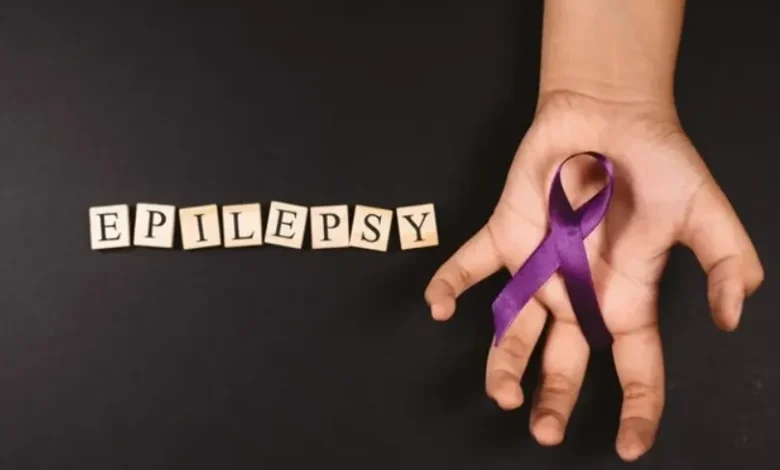Epilepsy Today_ 4 Advanced Treatment Trends to Consider

Epilepsy is a complex neurological condition that affects millions worldwide. Characterized by unpredictable seizures, it can impose significant challenges on daily life. Yet, with continuous medical advancements, the horizon for those living with epilepsy is brighter than ever. This post delves into four cutting-edge treatment trends that are reshaping the landscape of epilepsy care.
Contents
Neuromodulation Techniques
Neuromodulation stands out as a transformative approach to the management of epilepsy. This technique involves the use of devices that send electrical impulses or drugs to specific areas of the brain. One of the most promising devices in this category is the Responsive Neurostimulation System (RNS). It monitors brain activity and delivers subtle pulses of electricity to stabilize it before a seizure begins. The effectiveness of these devices has been demonstrated in numerous clinical trials, showing a significant reduction in seizure frequency for many patients.
Additionally, recent advancements have made these devices more user-friendly and less invasive, broadening their appeal. They also allow for real-time data tracking, giving both patients and doctors better insights into the condition’s management. For those who have struggled with other treatments, neuromodulation offers a new ray of hope.
Imagine a world where your body could potentially prevent a seizure before you even know it’s happening. That’s the promise neuromodulation holds. It’s not just science fiction—it’s real, and it’s here.
New Antiepileptic Drugs (AEDs)
The development of new antiepileptic drugs (AEDs) continues to offer hope. Recent years have seen the approval of several new medications by the FDA, each with a unique mechanism of action to control seizures. These drugs are designed to minimize side effects and are tailored to individual needs, which marks a significant step forward from older therapies.
The new drugs are also being tested for their effectiveness in various types of epilepsy, ensuring a broad application. Patients now have the potential to experience fewer side effects, thanks to the targeted nature of these medications. Moreover, ongoing research is likely to produce even more refined drugs as our understanding of epilepsy deepens. This is particularly crucial for those who have not responded well to existing medications, providing them with new options and new hope.
However, as with any medication, there are potential side effects. The balance between managing seizures and maintaining quality of life is delicate. It raises a crucial question: what are you willing to tolerate for the possibility of seizure control?
Medical Marijuana
The use of medical marijuana in treating epilepsy, particularly in drug-resistant cases, has captured public and scientific interest. Studies have shown that CBD, a component of cannabis, can significantly reduce the frequency of seizures without the psychoactive effects associated with marijuana. In states like Florida, residents can pursue this option legally with a Florida medical marijuana card. This card allows patients access to prescribed dosages of cannabis, which could be a game-changer in their treatment plan.
Clinical trials continue to investigate the optimal strains and dosages for seizure control, enhancing our understanding of how best to use this treatment. The card provides not only access but also a framework for safe usage under medical supervision, ensuring patients receive the maximum benefit without compromising their overall health.
The growing acceptance of medical marijuana in the medical community reflects a shift towards more holistic treatment approaches. Furthermore, patient testimonials and ongoing research are highlighting its potential, making it a crucial part of the conversation on epilepsy treatment options.
It’s a testament to how far we’ve come in understanding and utilizing what nature offers for health benefits.
Dietary Therapies
Dietary management has gained recognition as a potent tool against epilepsy. The ketogenic diet, rich in fats and low in carbohydrates, forces the body to break down fats instead of carbs, a process that has been shown to reduce seizure frequency. Similarly, the modified Atkins diet offers a less restrictive alternative but with comparable benefits.
The success of these diets has led to their inclusion in comprehensive epilepsy treatment programs worldwide. Not only do they help control seizures, but they also contribute to overall health improvements, such as weight management and increased energy levels. It’s important for patients to work closely with dietitians to ensure nutritional balance and avoid potential deficiencies.
Additionally, new variations of these diets are being developed to enhance palatability and long-term adherence. These dietary strategies require strict adherence and careful monitoring, but the results can be profoundly liberating. For many, the idea of controlling seizures through diet is an empowering one.
Personalized Medicine and Genetic Testing
The field of genetic testing offers another frontier in epilepsy treatment. By understanding the genetic underpinnings of epilepsy, doctors can tailor treatments to the individual, improving outcomes and minimizing trial and error. Personalized medicine is not just about treating symptoms but understanding the root cause and addressing it effectively.
This approach uses detailed genetic information to guide the choice of medication, reducing the time and uncertainty often involved in finding the right treatment. It also helps identify the risk of epilepsy in family members, potentially leading to preventative strategies. Advances in technology are making genetic testing more accessible and affordable, encouraging its integration into regular clinical practice. Moreover, the data collected from genetic testing can also contribute to broader research efforts, helping to unveil new treatment targets.
Conclusion
The landscape of epilepsy treatment is evolving rapidly, with each new development offering a beacon of hope. These advanced treatments—from neuromodulation to medical marijuana—provide patients with more tools than ever to manage their condition effectively. This dynamic field continues to grow, fueled by technological advancements and a deeper understanding of the neurological and genetic factors at play.
Engaging with a healthcare provider to discuss these options is crucial. After all, every individual case of epilepsy is unique, and what works for one person might not work for another. The journey towards seizure control and improved quality of life is a collaborative, ongoing process.
As we look to the future, the potential for further innovations remains boundless.
With continued research and a deepening understanding of the neurological foundations of epilepsy, the fight against this challenging condition is more promising than ever. Each advancement not only offers new hope for effective management but also moves us closer to understanding the complexities of the human brain.




